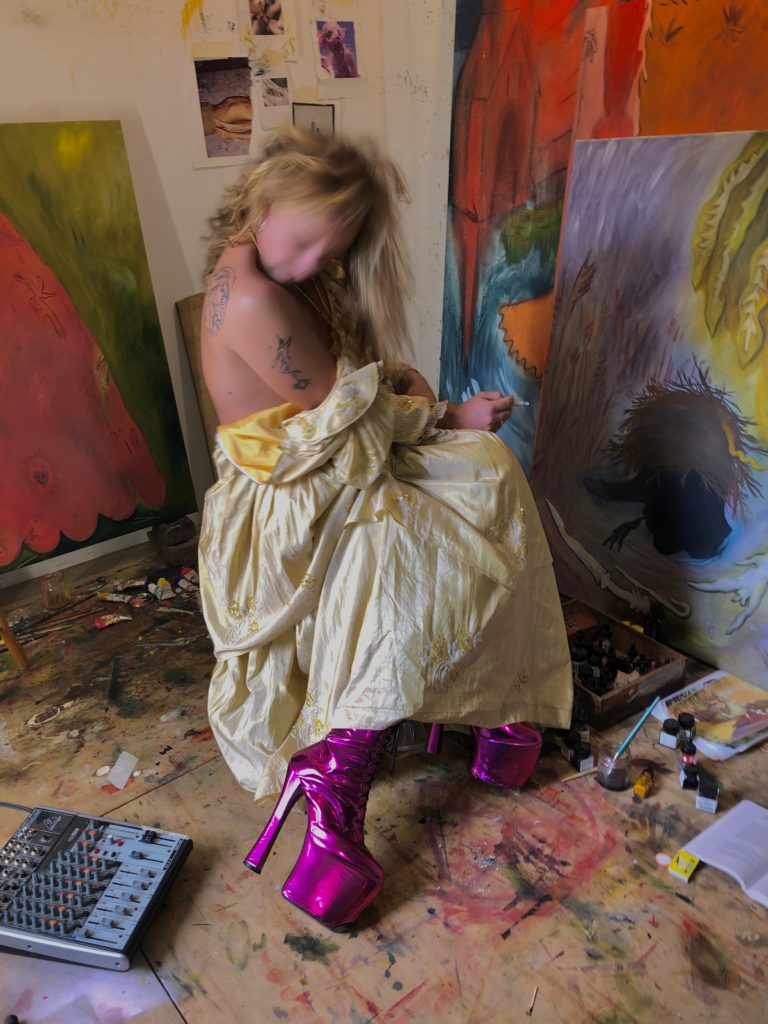
Only Gay in the Village
13 September 2020
September Residency: New Moor (No More)
Only Gay in the Village – Wolfie Wright
This week I visited Wolfie at his home/studio. We spoke about our experiences living in London, comparing and discussing the rurality of our respective hometowns and acknowledging how this informs our work and identities. I began by asking if he feels that his queerness is nourished by the countryside.
“On some level I do. I can be completely true to myself in a space where the natural world is all encompassing. Do you need to feel seen to be a queer person? Obviously community and visibility is important within the queer community, but you can totally have a solitary and self reflective exploration of ones own queerness. It’s something that you are experiencing alone at the end of the day. That might just be my own fucked up thing. Moving to the countryside I was escaping a self induced limbo state, I couldn’t evolve because I was inebriated the whole time, now that I’m sober I can experience my own truth and honesty. Sobriety and the natural world are so linked for me, both aspects in unison have given me the ability to live in truth, and gave me the space to think about my queerness and gender identity and fully embrace it.”
Would you say it focuses you on authentic queerness rather than the performance of queerness?
“Well yeah. For example, going out the other night (to a drag show in London) and getting dressed up, that performance of queerness was just an amplification of something that I already experience and already feel. expressing ones queerness in a performative way has become super important to me, living in the countryside I’m like, fuck, I actually need to show myself. I need to be seen. but it’s not the entirety of my queer identity. I’m lucky in having a good support network here, but its not easy being a queer person in the countryside either. People shouting out of a car window ‘Go back to the 80s, faggot’ and stuff like that, it’s happened. At the same time, I live in a liberal little village and that shit would also happen in London too. There’s also an element of almost wanting to push against the grain in the countryside. In London, everyone is trying to stand out.”
So you’d say your identity is more pronounced in the countryside?
“Exactly. It’s like i’m the only gay in the village. *laughs*
Its hard to know, I feel more comfortable and honest with my identity now, whereas it was fractured in London. I do wonder if I wasn’t such a raging alcoholic when I lived there that things might have been different. Places hold trauma, they are inextricably linked, its hard to tell if your environment makes you or you make your environment.”
Do you think ruralism benefits your practice?
“It does benefit my practice. I’m not as stressed. I have more time and space to work with, and also my practice is not taking place within the art world, I’m an outsider. My references in the countryside are basically just the natural world. The structure of my paintings, the shapes, even colours to an extent, are much more organic. there are references to the outside and my garden all the time. It will be nice to have you look at my paintings today because I’m always making working in isolation. I’m in such a bubble that I have no reference to, or feedback from, the outside world. I almost don’t know what the work looks like anymore, I could literally be painting like, a stick figure because I’m so used to being the only person looking at it every single day.”
For me, having spent a lot of time back in Yorkshire this year, my practice became a holistic daily thing based on my repeated activities and repeated exposure to certain environments. So for example, you spend a lot of time gardening. My lifestyle factors became part of my practice, which fed into a state of mind which naturally informs my work. Does this resonate with you, and could your work exist as it does if you were still living somewhere like London?
“I think both locations have a place in informing my work. When I first moved to the city I was prolifically painting, because I was really affronted by the madness of the city in contrast to the country. It sounds cliche to say, but within a garden you do actually have all of that madness. If I think about my studio set in my garden, surrounded by all of the life existing directly around me. It is fucking crazy, but on a different scale. In London there are lots of people, in my garden all of the same crazy energy is happening but, for example, on a flower. There’ll be creatures eating each other or two flies fucking, so much intense shit is happening in the natural world. Even the flowers and plants themselves are all in this cycle of life and death and growth and sex, it’s dog eat dog, everything is fending for itself within this natural balance. The logistics of London; public transport, finishing at the studio and then being shuttled around underneath the ground in a metal tube every day surrounded by people that you have no connection to is not a natural experience. It just doesn’t make me happy. Even when I was living in Johannesburg there was never that claustrophobia as there’s so much more space. Major cities like London, where everything is so close, it’s a crazy kind of urbanisation which I find really hard to relax into.”
You mentioned to me in a previous conversation that the pandemic hasn’t really affected your lifestyle. How so?
“My lifestyle is very much dependant on myself, I’m not surrounded by people. I’m gardening, I drive so don’t use public transport, its a simple existence, especially socially. I’ve toned down that rat race mentality of constantly feeling like you need to move up to the next point, now I’m maybe a bit more present in my work because i’m just doing it day by day. It’s both a good and bad thing because I’m in my own little microcosm doing my own thing. I’m not distracted by the world too much but I also don’t have that ease of communication as much as I used to.”
I find the rat race comment interesting. I agree that it is very much a common mentality in London, however when I’m in Yorkshire I feel more pressured to follow this model life path which we’ve been told we’re meant to follow. By 30 years old the average person in Yorkshire has a house and a spouse, they have a kid or two and a stable job, whereas in London everybody is very much doing their own thing at their own pace. While London is more of a rat race, it’s also more freeing for me than the countryside, because in the cultural environment which I grew up in, I feel like approaching 30 years old and working a part time job to support an art career is less understood and perhaps more judged than it would be in London. There are definitely two sides to that coin.
“That is very true actually. When I’m in London I’m so aware of the sexual freedom, social freedom and the ability to feel really connected to the world at large. There are less constraints socially, in how I should act or present myself, all of that is a little looser. This feeling is important as a queer person because queers in the countryside are few and far between. Obviously they exist, but It’s not like countryside queers can go to the gay pub in the village or go to a drag night or whatever. Our community is still mostly centred within cities and urban areas.”
Instagram: @wolfiewright

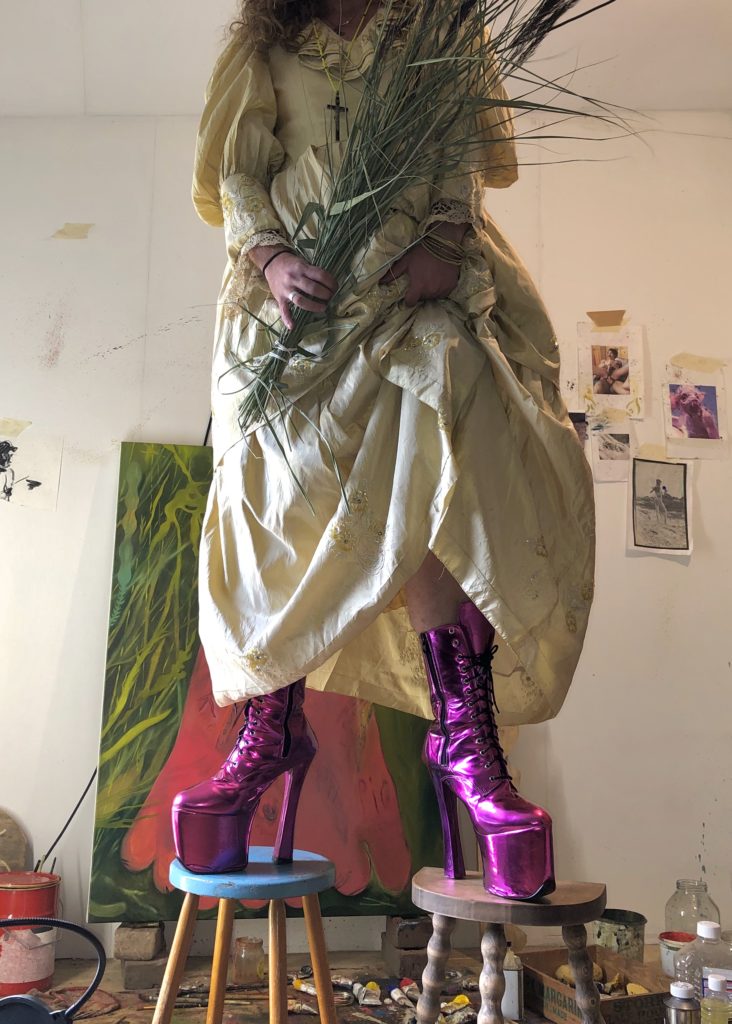
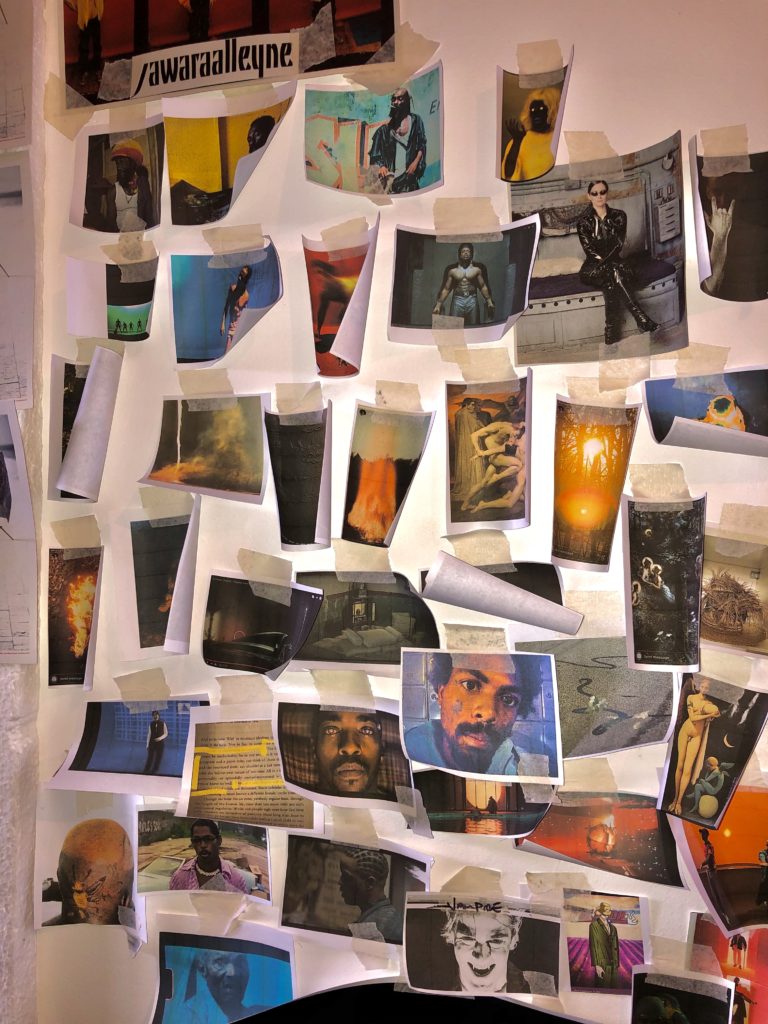
The Mysticism of Being -Jawara Alleyne
As someone who’s creative identity and sense of self has been shaped by three very different physical landscapes, I was…
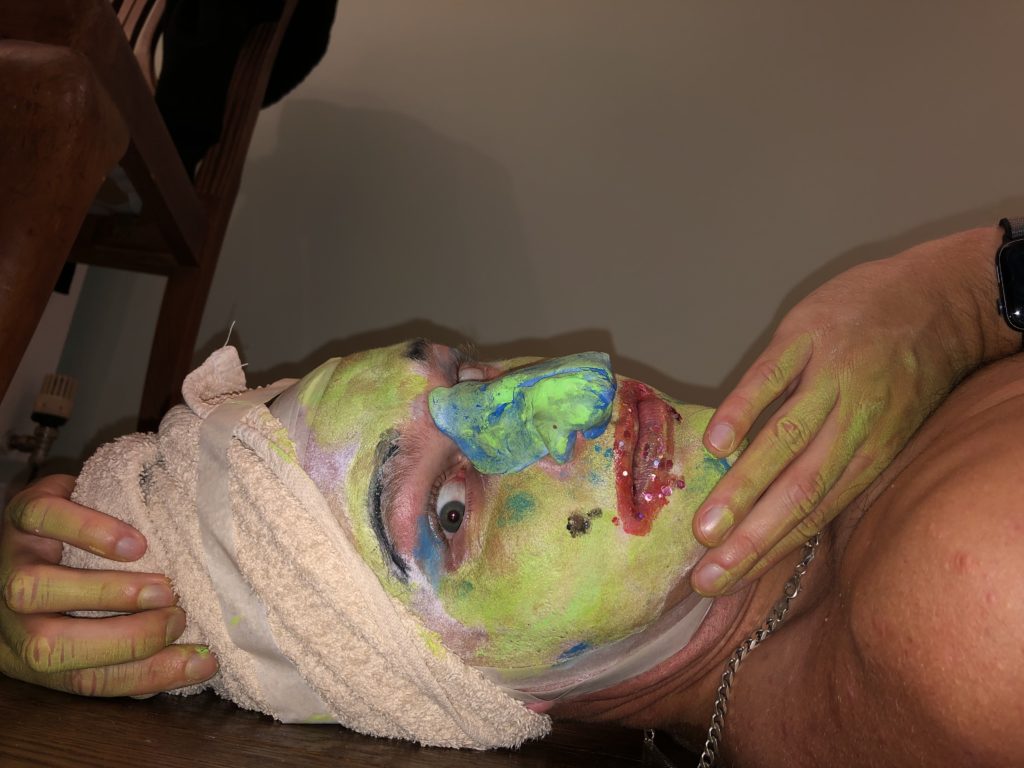
Green monster men as queer sex icons
I’ve never seen such lovely big courgettes https://deptfordx.wpengine.com/wp-content/uploads/2020/09/09-jhill-week2-.mp4 https://deptfordx.wpengine.com/wp-content/uploads/2020/09/10-jhill-week2.mp4
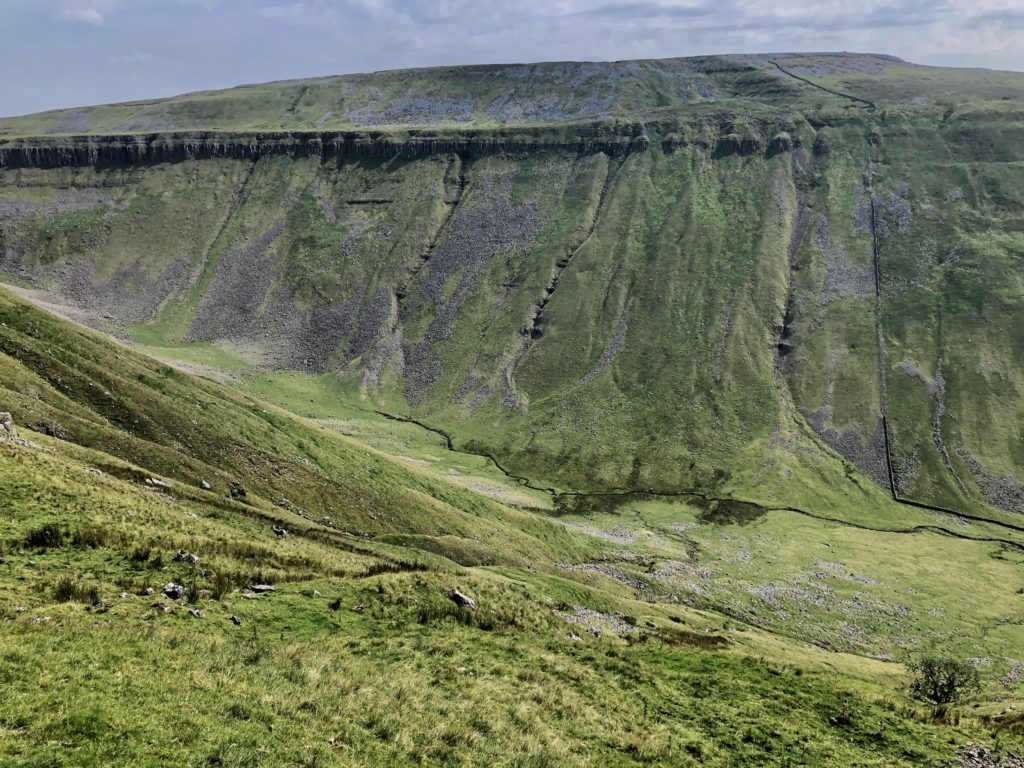
Foreword
In considering how to be together again, I ask what it means to establish your identity in and occupy spaces…
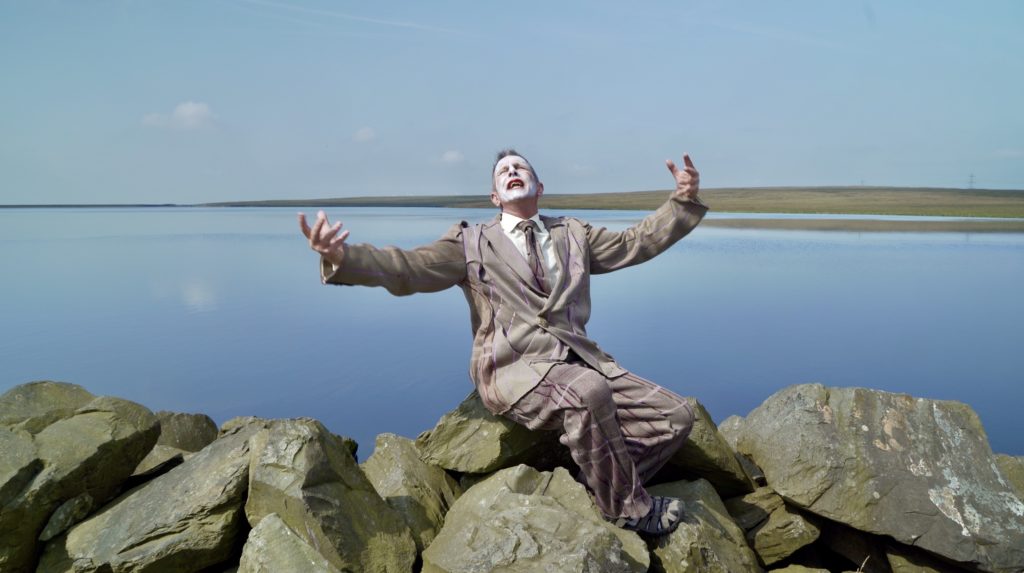
Jaron Hill
Jaron Hill is an artist and filmmaker based in Forest Hill. Since graduating from BA Fine Art at Central Saint…